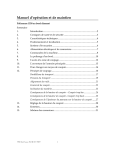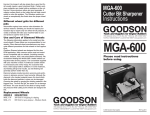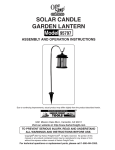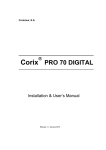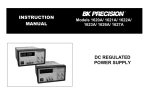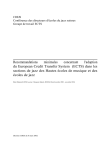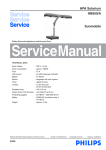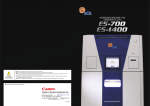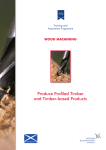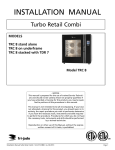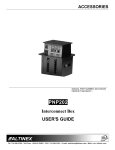Download Diamond Edge Polisher 1550
Transcript
1550 Inst Issue 6 05/09/06 Operating & Maintenance Instructions 1550 Diamond Edge Polisher Table of Contents 1. Introduction ............................................................................................................................................ 2 2. Health & Safety Information ................................................................................................................... 3 3. Specifications ......................................................................................................................................... 4 4. Positioning & Location ........................................................................................................................... 5 5. Electrical Supply & Connection.............................................................................................................. 6 6. Machine Controls ................................................................................................................................... 7 7. To Polish an Edge.................................................................................................................................. 9 8. Accessing the Cutter Area ................................................................................................................... 10 9. Opening the Main Cabinet ................................................................................................................... 11 10. Changing a Cutter Hub ...................................................................................................................... 12 11. Cutting Principles ............................................................................................................................... 14 Transport Parallelism .................................................................................................................. 15 Transport Pressure ..................................................................................................................... 16 Feed Track Alignment ................................................................................................................. 17 Cutter Cover................................................................................................................................ 18 Spindle Tilt .................................................................................................................................. 19 Effect of Cutter Height – Cutter Too Low .................................................................................... 20 Effect of Cutter Height – Cutter Too High ................................................................................... 21 Effect of Panel Thickness on Cutter Height ................................................................................ 22 12. Cutter Height Adjustment ................................................................................................................... 23 13. Maintenance ...................................................................................................................................... 25 14. Connection Diagrams ........................................................................................................................ 26 1 1550 Inst Issue 6 05/09/06 1. Introduction Edge finishing of acrylic, polycarbonate and similar thermoplastics can be a labour intensive procedure using traditional techniques. Regeneration of the sawn edge using the Diamond Edge Polishing technique produces a high quality, square and gloss polished finish, cost effectively and without heat and stress. This results in improved serviceability and will eliminate cracking problems if subsequently cemented. The 1550 Diamond Edge Polisher is the first UK designed and manufactured machine for this process and will convert a good sawn edge to a polished edge at the rate of, typically, one metre (40in) per minute. The machine consists of three basic elements: A high speed precision spindle, onto which is mounted a cutter hub fitted with two polycrystalline diamonds and one single crystal diamond. A transport system, which grips the material and passes it over the cutter. An extraction system, which removes the swarf created by the polishing process. 2 1550 Inst Issue 6 05/09/06 2. Health & Safety Information The 1550 Diamond Edge Polisher is fitted with interlock switches and sound reduction to meet European legislation. The following points should be observed for safe operation of the machine: 1. 2. 3. 4. 5. 6. At no time should operators place their hands into the transport system Always disconnect the machine from the mains supply before removing covers Always wait for revolving parts to stop before attempting to adjust the machine Always wear ear protection when using the machine Never use the machine if any of the interlock switches are defective Never attempt to bypass interlock switches Should there be any queries regarding Health & Safety aspects of the 1550 please refer back to the manufacturer or their nominated representative. 3 1550 Inst Issue 6 05/09/06 3. Specifications Mechanical specification Maximum material thickness Spindle speed (maximum) Spindle speed (minimum) Feed rate 1) For general commercial finish 2) For maximum quality finish In and out feed track length Maximum sheet size (typical) Cutting tools –roughing Cutting tool - finishing Stock removal per pass 50mm (2in) 20,000 rev/min 12,000 rev/min 1-2m/min (40-80in/min) 0,5m/min (20in/min) 1220mm (48in) 1850 x 900mm (72in x 36in) 2 x polycrystaline synthetic diamonds 1 x Monodie 4mm (0.2in) single crystal diamond 0.75mm (0.030in) Weights and Dimensions Width x Depth x Height (mm) Width x Depth x Height (in) Weight 2375 x 572 x 915 93.5 x 22.5 x 36 410kg (902lb) Electrical specification UK / Europe USA Voltage Frequency Current - max Watts - spindle motor Watts - transport motor Watts - Vacuum motor 220-240 50Hz 7.75A 550W 150W 900W 208-220 60Hz 9.13A 550W 150W 900W 80dB (normal) 85dB (full load) Noise Emissions Noise Level 4 1550 Inst Issue 6 05/09/06 4. Positioning & Location The 1550 weighs 410kg (902lb), and therefore needs to be positioned by mechanical means. The machine can be lifted either:1. Under the main frame 2. Using the lifting holes drilled in the wings of the machine 3. Under the wings Diagram 1. Lifting Points Do not attempt to lift the machine other than by the approved lifting points Option 1 is ideal when lifting the machine directly using a fork lift truck or hand pumped truck. Options 2 and 3 should be used when lifting the machine with slings. The machine has four adjustable feet and it is important that it is sited on a firm, preferably concrete, floor, for maximum rigidity. It need not be secured to the floor or, necessarily, truly level but at least one of the feet must be adjusted and locked with the foot adjustment locking nut such that all four feet are taking equal weight and there is absolutely no evidence of instability. 5 1550 Inst Issue 6 05/09/06 5. Electrical Supply & Connection The electrical specification of your new machine is as follows:Voltage Current (max) Watts (max) 240V AC 50Hz (standard) 220V AC 60Hz (North America) 7.75A / 9.13A 1860W / 2000W Electrical supply to the machine must be in accordance with the details shown on the rating label. As the colours of the wires in this mains lead may not correspond with the coloured markings identified in your plug appliance, should the plug need to be changed proceed as follows:- Standard Specification The wire which is coloured green and yellow must be connected to the terminal which is marked with the letter E or by the earth symbol or coloured green and yellow or green. The wire which is coloured blue must be connected to the terminal which is marked with the letter N or coloured blue or black. The wire which is coloured brown must be connected to the terminal which is marked with the letter L or coloured brown or red. North American Specification The wire which is coloured green must be connected to the terminal which is marked with the letter E or by the earth symbol or coloured green and yellow or green. The wires which are coloured black and white must be connected to the silver coloured terminals. Polarity is unimportant. !!IMPORTANT!! THIS EQUIPMENT IS FITTED WITH FILTERING TO COMPLY WITH ELECTROMAGNETIC LEGISLATION. THESE FILTERS WILL BE DESTROYED BY FLASH TESTING. SHOULD A FLASH TEST BE CARRIED OUT ON THIS EQUIPMENT DISCONNECT MAINS FILTER BEFORE PROCEEDING Should there be any queries regarding the electrical requirements of the 1550 please refer back to the manufacturer or their nominated distributor. 6 1550 Inst Issue 6 05/09/06 6. Machine Controls All of the machine controls are located on the front control panel as shown in Diagram 3 below. Diagram 3. Machine controls 1. Emergency Stop Buttons. Disable all machine movements. Push to operate. Twist buttons to release. 2. Mains Neon. Illuminates when machine Mains Switch (3) is in the On (I) position. 3. Mains Switch. I = On. O = Off. No power is available to the machine controls unless in the I position. 4. Fuse–Control. Provides overload protection for the Control Circuit. Rating = 500mAF. 5. Fuse-Spindle. Provides overload protection for the Spindle Motor. Rating = 2A-T. 6. Fuse-Transport. Provides overload protection for the Transport Motor. Rating=5A-T. 7. Machine Functions On-Off Button. Pressing I switches on Spindle, Transport and Extraction systems. Pressing O switches these functions off. 8. Speed Control – Transport. Adjusts Feed Rate of material through machine. 9. Speed Control – Spindle. Adjusts Spindle speed. 10.Phase Invertor Display. Provides display of spindle frequency. 50.0Hz = 20,000rpm. 30.0Hz = 14,000rpm. The display can also be used to configure the phase invertor. This procedure should only be carried out with guidance from the Technical Staff of the supplier or distributor. 7 1550 Inst Issue 6 05/09/06 11.Extraction Over-ride Switch. Switches on the Extraction system only, e.g. for swarf clearance while changing cutter hubs. 12.Hour Counter – Machine. Counts the Total Number of machine running Hours. This Counter cannot be reset. 13.Hour Counter – Cutter Hub. Counts the machine running hours, but can be reset by pressing the black push button inside the control enclosure (see Diagram 4 below). This counter can be used to monitor cutter life, and should be reset when the cutter hub is changed. Diagram 4. Cutter Hour Reset Button 8 1550 Inst Issue 6 05/09/06 7. To Polish an Edge Your machine will be supplied set up with a cutter hub and ready to polish. To polish an edge proceed as follows: Select your piece of material The 1550 will accept pieces of material of thicknesses up to 55mm. Should you wish to polish thinner materials, these can be polished as packs up the 55mm maximum. The minimum panel size which should be polished is 100mm square. The ends of longer rods or bars of material can also be polished, but care should be exercised. The 1550 will polish most thermoplastic materials. It must be noted however that cutter life will vary depending upon the characteristics of the material being polished. Cutter life can be improved by adjusting the transport and spindle speed to suit the material. These adjustments should be made as follows: Spindle Harder materials – e.g. Cast Acrylic Softer materials - e.g. PETg, Polycarbonate Transport Harder materials - e.g. Cast Acrylic Softer materials - e.g. PETg, Polycarbonate 50Hz (Max Speed) 30Hz (Min Speed) Speed 2-3 Maximum speed that does not chip the edge Maximum speed Switch on the machine as described in Section 7 above. Set the spindle and transport speeds and start the motors. Load the material vertically onto the infeed (left hand) track. Push the material until the transport system grips it and starts to feed it into the machine. At this stage, let go of the material, and let the machine transport it over the cutter and polish the edge. Once the material has been released from the transport, remove and inspect. Note that the piece being polished must have exited the transport system before the next piece is loaded. Failure to observe this could result in damage to the cutters. After use, switch off the machine. 9 1550 Inst Issue 6 05/09/06 8. Accessing the Cutter Area The cutter area is accessed by opening the transport systems. Remove the four cap head screws (1) and (2) in Diagram 5 below. Note that screws (1) are much longer, as they extend down to contact interlock microswitches beneath. Diagram 5. Transport Securing Screw Positions Once the screws have been removed the transport assemblies can be pivoted open (Diagram 6 below). Diagram 6. Transport Systems Opened 10 1550 Inst Issue 6 05/09/06 9. Opening the Main Cabinet The control enclosure across the front of the machine is hinged from the right hand side. There is a single handwheel (1) in Diagram 7 below) which must be unscrewed. The control enclosure will then hinge open giving access to internal adjustments (see Diagram 8 below). Note that the control enclosure is fitted with an interlock switch. Diagram 7. Position of Handwheel for Opening Main Cabinet Diagram 8. Main Cabinet in Open position 11 1550 Inst Issue 6 05/09/06 10. Changing a Cutter Hub Access the cutter area as shown in Section 9 above. Remove the 3 screws [(1) in Diagram 9 below] which secure the cutter cover. Lift the cutter cover off the machine. Diagram 9. Removal of Cutter Cover Remove the central screw [(1) in Diagram 10 below] from the cutter hub Diagram 10. Removal of Cutter Securing Screw 12 1550 Inst Issue 6 05/09/06 Screw on the cutter shield, and using a 4mm Hexagon Key tighten the central grub screw until the cutter hub is released from its taper. Remove the old cutter hub. Clean the taper on the spindle, and the tapered bore of the new hub. Remove the shield from the new hub and locate it onto the spindle. Refit the central securing screw, ensuring that the washer is fitted under the head. Refit the cutter cover. Close the transport assemblies. Cutter hubs are optically set so that they will be +/0 05mm. Therefore the machine can be run straight after a cutter change. However, for optimum results the cutter height should be checked and adjusted after each change. Refer to Section 13 for details of checking cutter height. N.B. It is imperative that the Diamonds are not touched during the changing procedure. Any contact with the diamonds could result in a chip on the cutting edge which could destroy polishing quality. Never attempt to clean the diamonds, other than with a clean compressed air blast. 13 1550 Inst Issue 6 05/09/06 11. Cutting Principles The 1550 removes 0.75mm of material from the stock being polished. When dealing with these small amounts, machine adjustments become imperative to optimum performance. Below is a description of the machine adjustments which are available. Should the machine not be performing, these checks should be carried out in the order they are set out. This will usually restore polishing quality. 14 1550 Inst Issue 6 05/09/06 Transport Parallelism The transport pressure plates are spring loaded to accommodate material thicknesses from 3-50mm (0.125”-2”). The plates are mounted on linear guides, and therefore will not twist to conform to the material. For this reason, it is important to ensure that the pressure plates are parallel, so that the material being polished is gripped all the way through the polishing operation. To check and adjust transport parallelism:Select a piece of extruded material, thickness approximately 6mm, size approximately 450mm x 200mm. Feed the material into the transport system, 25mm above the feedtrack level. When equal amounts of material protrude from either side of the transport system, switch off. Rock the material, to check that it is being gripped equally across the transport system. Diagram 11. Checking for even Clamping In the case of uneven clamping, remove the material, open the transport system and adjust the parallel setting using the cap screws (1) in Diagram 12 below. Diagram 12. Position of Adjuster Screws for Parallelism Close transports and re-check. Note : when closing transport systems always ensure that the heads of the adjusting cap screws contact their stop point on the machine. Always adjust the transports equally to ensure that material is fed parallel to the feed tracks. 15 1550 Inst Issue 6 05/09/06 Transport Pressure Material to be polished is loaded vertically onto the infeed track. The transport system grips the material and transports it across the cutter (arrow 1 in Diagram 13 below). The transport also applies a gentle downward pressure (arrow 2 in Diagram 13 below) This ensures that the material is supported by the smooth surfaces of the feed tracks. Diagram 13. Transport Pressure To check & adjust transport pressure:Open transport systems Turn the knurled knobs on the adjusters (1) below anticlockwise until they go slack. Turn clockwise until they just tighten. Note position of brass marker on scale. Turn adjuster clockwise 3.25 turns. Ensure that this is carried out on both front and rear transports. Do not adjust while transports are closed – the driveshafts will contact the top deck of the machine and give an incorrect setting. Ensure that thrust washers are correctly located on their pins (2 in Diagram 14 below). Diagram 14. Adjustment of Transport Pressure 16 1550 Inst Issue 6 05/09/06 Feed Track Alignment The machine removes 0.75mm of material per cut. If the feed tracks were level, the material would be unsupported once it was polished. This would cause the material to fall onto the outfeed track as it left the transport and could mark the finish on longer pieces. Therefore, the outfeed track is ground 0.75mm higher than the infeed track. This height difference ensures that material is supported throughout the cutting process. This element is critical to machine performance and must be appreciated in order to understand some of the principles below. It is not, however, adjustable by the user. 17 1550 Inst Issue 6 05/09/06 Cutter Cover The cutter cover extends the feed tracks over the cutter aperture, supporting the material, which improves finish quality. The left hand section (1 on Diagram 15 below) is level with the infeed track. The central and right hand sections (2 on Diagram 15 below) are level with the outfeed track. The cutter cover is precision ground and individually fitted to each machine on assembly. It is not adjustable by the user. Diagram 15. Principles of Cutter Cover 18 1550 Inst Issue 6 05/09/06 Spindle Tilt The cutting action takes place on the left hand side of the cutter revolution. To avoid leaving “backswipes”, or witness marks from the right hand side of the cutter, the spindle is tilted to 0.14°. This leaves approximately 0.3mm of clearance between the cutter and the material on the right hand side of the cutter revolution. The spindle tilt means that the edge that is cut by the machine is slightly convex. This would be measured as approximately 0.025mm over the full 55mm thickness capacity and can therefore be overlooked in terms of tolerancing. Spindle tilt is factory set and should not be adjusted under any circumstances. Diagram 16. Spindle Tilt 19 1550 Inst Issue 6 05/09/06 Effect of Cutter Height – Cutter Too Low Should the cutter be too low, the following will occur: The front corner of the material will hit the centre island of the cutter cover after polishing. This will leave a mark in the finish. (1) in Diagram 17 below. Diagram 17. Cutter Too Low Diagram A As the piece continues, the mark will hit the island leaving an echo of the original. Diagram 18. Cutter Too Low Diagram B This will continue along the workpiece. In extreme circumstances, the downward pressure of the transport system will push the material onto the outfeed track, pivoting the material on the corner of the island and lifting the rear of the material off the infeed track. This will result in a tapered cut, or even the back not being polished at all. Diagram 16. Cutter Too Low Diagram C 20 1550 Inst Issue 6 05/09/06 Effect of Cutter Height – Cutter Too High Should the cutter be too high, the following will occur: The machine will remove too much material from the edge being polished. This will leave the polished material above the outfeed track level. Diagram 17. Cutter Too High Diagram A As the polishing continues the unsupported material starts to fall onto the outfeed track. Diagram 18. Cutter Too High Position B As the material falls the cutter leaves marks along the edge of the piece being polished at random intervals. Diagram 19. Cutter Too High Position C 21 1550 Inst Issue 6 05/09/06 Effect of Panel Thickness on Cutter Height While the cutter should be level with the outfeed track, this position will vary depending upon the thickness of material being polished. This is because of the spindle tilt as described above. Therefore, it may be necessary to raise the cutter for thick work, and lower it for thinner work. One increment of the spindle adjustment = 0.025mm, so one or at most two increments will be sufficient. 22 1550 Inst Issue 6 05/09/06 12. Cutter Height Adjustment The Cutter Height assembly comprises the following elements: Clamping Handle [(1) in Diagram 20 below]. This clamps the spindle. Move to the left to unclamp. Move to the right to clamp. Note that firm pressure must be applied to clamp the spindle. The machine will be set so that, when correctly clamped, the handle will rest against the main body of the machine. Index Plate [(2) in Diagram 20 below]. This sets the cutter height. The index pin fits through the appropriate hole in the Index Plate, and into a mating hole in the adjusting collar (3). Note that the holes are arranged in two rows to give finer adjustment. One hole represents 0.02mm height adjustment. Handle [(4) in Diagram 20 below]. This allows the operator to move the cutter up and down. Move to the right to raise the cutter. Move to the left to lower the cutter. Diagram 20. Cutter Height Adjustment 23 1550 Inst Issue 6 05/09/06 The procedure for adjusting the cutter height is as follows: Switch the machine off at the Mains I-O switch. Ensure that all motors have stopped. Open the main cabinet Unclamp the spindle. Remove the index pin, and place into its new hole. Raise or lower the cutter using the handle, until the index pin locates in the adjusting collar. Push the handle to the right, and at the same time clamp the spindle. Should there be insufficient adjustment of cutter height please refer back to the manufacturer or distributor for assistance. 24 1550 Inst Issue 6 05/09/06 13. Maintenance The only regular maintenance which is required is the changing of cutter hubs. Periodically the transport belts may require servicing, please refer to the separate Service Manual for information regarding this. Should there be any queries regarding the 1550 Diamond Polisher, please contact the manufacturer or their nominated Distributor. 25 1550 Inst Issue 6 05/09/06 14. Connection Diagrams 26



























